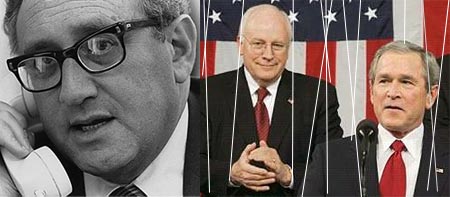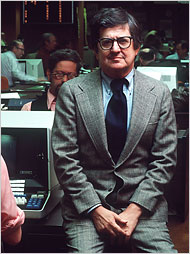The Patient Investigative Journalist
Tuesday, September 4th, 2018Reporter; A Memoir, Seymour M. Hersh, 2018
This is Hersh’s eleventh book. His Henry Kissinger book was first published in 1983, long after Kissinger left the government. We are still awaiting his Dick Cheney book. Hersh explains that writing always came easy to him:
<> <> <> <> <> <> <> <> <> <> Sy Hersh 
I grew up in a world where the incentive to learn came from within me, as did a sense of whom to trust and whom to believe. I was guided as a confused and uncertain eighteen year old by a professor who saw potential in me, as did Carroll Arimond at the Associated Press, William Shawn at The New Yorker, and Abe Rosenthal at The New York Times. They published what I wrote without censorship and reaffirmed my faith in trusting those in the military and intelligence world whose information and friendship, I valued but whose names I could never utter. I found my way when it came to issues of life and death in war to those special people who had the integrity and intelligence to carefully distinguish between what they knew — from firsthand observation at the center — from what they believed. The trust went two ways; I often obtained documents I could not use for fear of inadvertently exposing the sources, and there were stories I dared not write for the same reason.
I never did an interview without learning all I could about the person with whom I was meeting, and I did all I could to let those I was criticizing or putting in professional jeopardy just what I was planning to publish about them.
I will return to the Cheney book when the time is right, and when those who helped me learn what I did after 9/11 will not be in peril.
Cardinal O’Conner Archbishop of New York told Hersh:
“My son, God has put you on earth for a reason, and that is to do the kind of work you do, no matter how much it upsets others. It is your calling.”
Some of the more interesting parts of this book deal with the relationship of Hersh with Abe Rosenthal, Executive Editor of The New York Times. Their first interaction was a phone call while Hersh was working on the Meadlo (a soldier at the My Lai massacre) story. A copy of the story had been sent to the Times and Rosenthal wanted to send a Times reporter to interview Meadlo. Hersh grabbed the phone:
“Mr. Rosenthal, it’s Sy Hersh. Listen, you want an interview with Paul Meadlo? Well he’s somewhere in New York. Find him.”
Hersh slammed the phone down. Seconds later the phone rings again. Hersh grabs it:
“Mr. Hersh”, Abe Rosenthal yelled, ” Do you know who I am?”. “Yes”, replied Hersh and hung up on him again.
CBS Evening News aired Mike Wallace’s interview with Paul Meadlo that same evening. Hersh later regretted his temper tantrum but Rosenthal hired him anyway.
William Calley, the only soldier court martialed for My Lai served three months in prison. Stories continue to break about the attempted cover up and the role of higher officers. My Lai was not an isolated event. On the same day as the My Lai 4 massacre, at My Khe 4, another massacre occurred with more than a hundred civilian deaths.
The Times hired Hersh on the basis of his My Lai reporting. Hersh wanted to pursue three other stories at the Times; the secret bombing of Cambodia and military falsification of documents; Nixon, Kisssinger, and the CIA’s interference with the Allende government in Chili; and the several hundred million dollar effort by the military to recover a Soviet Nuclear submarine sunk in the Pacific. Rosenthal, however, was tired of reading the daily Washington Post reporting by Berstein and Woodward on the Watergate break in and reassigned Hersh to this story. Hersh uncovered the existence of the Nixon plumbers operation and the break in of Daniel Ellsberg’s psychoanalyst’s office in California. Nixon was paranoid that Ellsberg might have other documents beyond the Pentagon papers that might be damaging to him. Ellsberg and Hersh became friends and saw Oliver Stone’s movie Platoon together. Ellsberg did have additional documents about nuclear war planning which he hid in a trash dump. A mud slide destroyed those files and Ellsberg spent almost 50 years reconstructing them for his latest doomsday machine book.
When the Nixon white house tapes were found, the Watergate story exploded and Bob Woodward and Hersh started sharing information to save duplication and time. They often met over tennis and Woodward quipped that Hersh never paid for the tennis time. Hersh clarifies here that Katharine Graham, publisher of the Washington Post was paying for the court time.
William Calley 3 months 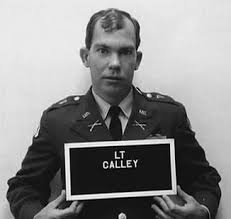 Reality Winter 5 years
Reality Winter 5 years 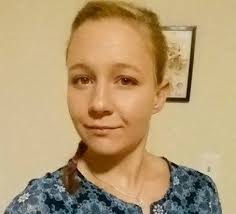
This book doesn’t deal with whistle-blowers other than to note how tough Obama was on them. Virtually all NSA whistle-blowers have had their careers ruined. The latest, Reality Winter, has been sentenced to at least five years for telling the public that the Russians attempted to hack electoral systems and voter lists during the 2016 elections. Calley, convicted of killing 21 innocent Vietnamese, served three months.
<> <> <> <> <> <> Mob Fixer Korshak 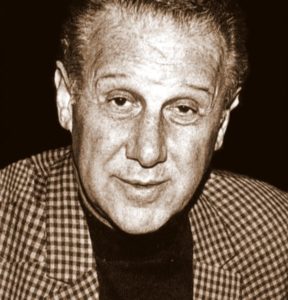
Hersh briefly dipped into an investigation of organized crime with a series of articles on the Chicago Jewish fixer attorney for the mob Sidney Korshak. Korshak’s influence with the Teamsters in New York prevented delivery of part 1 of the Times Korshak story.
When Hersh undertook to investigate the New York based corporation Gulf and Western, he hired a graduate school knowledgeable about securities issues to help him. Unfortunately, Punch Sulzberger, publisher of the Times did not want to offend his club buddies from Gulf and Western and the articles were mercilessly edited and all anonymous quotations removed. Rosentenhal was unable to defend Hersh and this was the start of the end of Hersh’s career at the Times. Nonetheless, John Kenneth Galbraith, Harvard economist wrote Hersh:
“The pieces on Gulf and Western are excellent — better than most readers will know. Extracting usable information from these characters, as I can attest from slight experience, is more difficult by a factor of ten than from the CIA. Thanks again.”
<> <> <> <> <> <> John Kenneth Galbraith 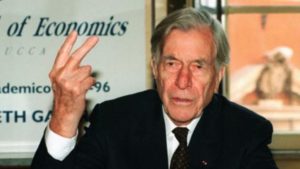
Hersh wondered why there was still so little cooperation between the intelligence community even after 9/11. He asked a long time CIA operative:
Don’t you get it Sy? The FBI catches bank robbers. We rob banks. And the NSA? Do you really expect me to talk to dweebs with protractors in their pockets who are always looking down at their brown shoes?”
When Hersh had a story about the killing of Osama Bin Laden that contradicted much of the Obama administration account, neither the Times nor the New Yorker (under David Remnick) would touch the story and Hersh published the story with the London Review of Books. He then published the book about the killing. Steve Cole in his recent book about Afghanistan and Pakistan entitled Directorate S does not mention Hersh’s killing account but seems to endorse the Obama version of events. Hersh comments:
<> <> <> <> <> <> <> <> <> <> <> <> 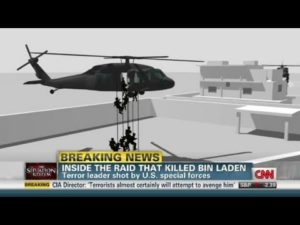
The possibility that two dozen navy SEALs could escape observation and get to bin Laden without some help from the Pakistani military and intelligence community was nil.
Hersh says the focus of the coverage should have been the double cross of Pakistan, not the refusal of the Times and The New Yorker to publish the story. During his long career he has often been challenged sometimes very bitterly. Hersh replies;
I will happily permit history to be the judge of my recent work.
Hersh discovered that James Jesus Angleton oversaw CIA domestic spying on Vietnam war protestors from 1967. Hersh’s story led to Angleton’s resignation in 1974.
<> <> <> <> <> <> <> <> <> <> <> <> 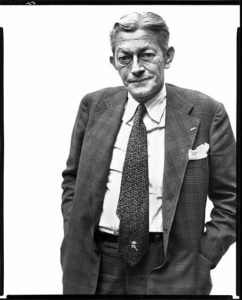
Hersh disclosed that in 1968 6,000 sheep died in a nerve gas experiment gone wrong at the Dugway Proving Ground in Utah. A different wind could have carried the gas to Salt Lake City.
Also featured in this book is Harrison Salisbury who covered the Soviet Union for the Times from 1949 to 1954. He returned to New York where he covered the civil rights movement, the assassination of JFK and other stories until he retired from the Times as associate editor in 1973. He wrote his book on the Times, Without Fear or Favor in 1980. In this book, Salisbury wrote about the Watergate investigation:
“It was as though Sy Hersh had been born for this moment.”
In all Salisbury wrote 29 books including the 1969 Siege of Leningrad. He witnessed the Tienanmen demonstrations and massacre in 1989 and wrote The New Emperors: China in the era of Mao and Deng in 1992, portraying Mao and much of the leadership as Opium addled. Salisbury was from the beginning against the Vietnam War and was the first American journalist to be given a visa to visit Hanoi in 1966. He wrote extensively about the US bombing of Hanoi at this time. Hersh was the second American reporter to be given a visa to Hanoi. There he met Defense Minister Vo Ngyuyen Giap and the Paris negotiator Le Duc Tho .
